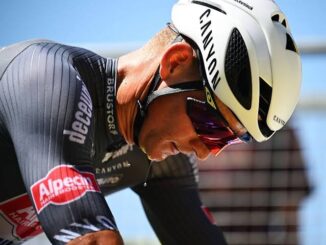
ANALYSIS: Belgian cyclocross could be in crisis, and it is Mathieu van der Poel’s fault…
Belgium has long been a powerhouse in cyclocross, producing numerous champions and dominating the sport. However, recent developments suggest that Belgian cyclocross may be facing a crisis, particularly among female riders. This situation is not directly attributable to Dutch star Mathieu van der Poel, but his dominance has highlighted underlying issues within Belgian cycling.
The Decline in Belgian Women’s Cyclocross
In 2019, Sanne Cant secured the Cyclocross World Championship, marking a high point for Belgian women in the sport. Since then, however, Belgian female riders have struggled to maintain their competitive edge. Notably, no Belgian woman has stood on the podium in the elite women’s category at the World Championships in the past six years. This stark contrast to their previous successes underscores a significant decline in performance.
The Impact of Mathieu van der Poel’s Dominance
While van der Poel’s exceptional talent is undeniable, his success has inadvertently cast a shadow over Belgian cyclocross. His consistent victories, including a record-tying seventh World Championship title in 2025, have set a high benchmark that Belgian riders have struggled to meet. This disparity has led to increased pressure on Belgian athletes and has highlighted the need for a strategic overhaul to reclaim their former prominence.
Challenges Facing Belgian Cyclocross
Several factors contribute to the current crisis in Belgian cyclocross:
1. Erosion of Talent Pool: The rise of international competitors, particularly from the Netherlands, has diluted the concentration of talent in Belgium. This has made it more challenging for Belgian riders to secure top positions in major competitions.
2. Training and Development Issues: There is a growing concern that Belgium’s training programs are not evolving to keep pace with the changing dynamics of the sport. A lack of innovation in coaching methods and facilities may be hindering the development of new talent.
3. Psychological Pressure: The dominance of riders like van der Poel has placed immense psychological pressure on Belgian athletes. The expectation to perform at the highest level, coupled with the fear of failure, has affected their mental resilience and overall performance.
Potential Solutions
To address these challenges, several measures could be considered:
– Revamping Training Programs: Implementing modern coaching techniques and investing in state-of-the-art facilities could enhance the development of young talent.
– Psychological Support: Providing mental health resources and psychological support can help athletes cope with the pressures of competition and improve their performance.
– International Collaboration: Engaging in partnerships with other leading cycling nations could facilitate knowledge exchange and foster a more competitive environment.
Conclusion
While Mathieu van der Poel’s exceptional achievements have highlighted the challenges within Belgian cyclocross, the crisis is multifaceted and stems from deeper systemic issues. Addressing these concerns requires a comprehensive approach that focuses on talent development, psychological well-being, and international collaboration. By implementing these strategies, Belgium can work towards revitalizing its cyclocross legacy and restoring its position at the pinnacle of the sport.



Be the first to comment